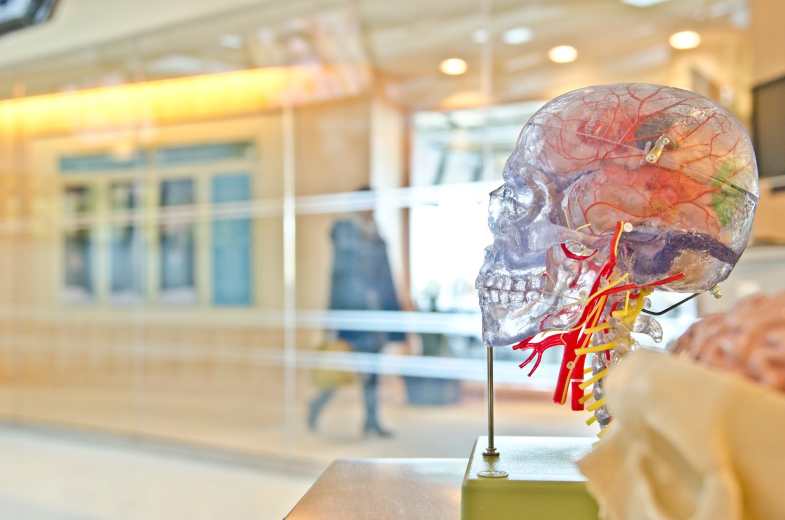Proudly Serving Veterans
with TriWest Insurance
We utilize the latest FDA-Approved TMS Therapy to treat Veterans. Call (619) 648-5350 Today!
TMS for Depression
TransCranial Magnetic Stimulation
After many unsuccessful attempts at treating major depressive disorder with antidepressant medications (SSRIs, SNRIs, etc.) the struggle can begin to feel hopeless. When traditional medications and talk therapy aren’t properly combatting the problem, the question of what to try next can be confounding. Luckily, there are alternatives to pharmaceuticals and psychotherapy that can help someone who is struggling with Treatment-Resistant Depression (TRD).
You’ve probably heard of electroconvulsive therapy, also commonly referred to as ECT. However, along with that name comes a lot of negative stigmas. Another option exists that is minimally invasive and practically as effective as ECT for veterans who suffer from depression and don’t respond well to other treatment methods. That option is Solara’s TMS for depression in San Diego.
Limits of SSRIs and Other Medications
SSRIs (Selective Serotonin Reuptake Inhibitors), SNRIs (Serotonin-Norepinephrine Reuptake Inhibitors), and many other psychiatric medications don’t always work, even though they are often the first treatment a doctor will prescribe to someone suffering from depression.
Even if the antidepressants do work, they often only work at first and not for long. There are plenty of people who have been on and off depression medications for years with absolutely no sign of improvement. In cases like this, Treatment-Resistant Depression must be addressed with other treatments. Apart from Cognitive Behavioral Therapy and other forms of talk therapy, alternative methods must be considered for people with stubborn Major Depressive Disorder.
Electroconvulsive Therapy Vs. TransCranial Magnetic Stimulation
Electroconvulsive therapy has been around for a long time and has been rightfully referred to as both intense and invasive. Its side effects, like sluggishness and catatonia, have been known to last for days and strongly affect the life of the patient. Perhaps the worst side effect of electroconvulsive therapy is a high rate of memory loss.
According to an article by the Psychiatric Times comparing Electroconvulsive therapy and TMS as a remedy for Treatment-Resistant Depression, the rate of adverse effects was more common for people who had received ECT. In another study cited in the same article, “on follow-up, up to 60% of the ECT group reported short- or intermediate-term adverse effects, mostly memory loss. In comparison, 30% of the TMS group reported minor, short-term effects such as headaches during treatment, which resolved within a few hours.” This article goes on to add that “The investigators [of the study] concluded that ECT appears to be more effective than TMS for TRD, but the difference (based on group effect) may not be statistically significant.”
In other words, the group of patients that received electroconvulsive therapy was 30% more likely to have adverse side effects, have them for longer, and have them in more severe ways. ECT might be slightly more effective, but many could argue it shouldn’t be the first choice when it comes to alternative treatments for depression. TMS also has the advantage of not requiring any invasive procedure like surgery or implants of electrodes, nor does it require anesthesia the way that electroconvulsive therapy does.
TMS does have a risk of seizures for people with a history of them and should be approached with caution in these cases. However, these risks are fairly rare and the most common symptoms are milder, such as headaches, tingling of the facial muscles, sudden small spasms in the facial muscles, lightheadedness, and possible discomfort at the site of where the coils were placed.
How (And Why) Does TransCranial Magnetic Stimulation Work For Depression?
During a TMS session, an electromagnetic coil is placed on the patient’s forehead for around 40 minutes. The electromagnet transmits magnetic pulses that stimulate the brain’s nerve cells in the part of the brain associated with depression and other mood issues. The purpose of Transcranial Magnetic Stimulation is to activate the parts of the brain that may be underactive due to depression or anxiety.
During your first appointment, you’ll be taken to a private room where the coil will be placed on your forehead and the electromagnetic pulses will be activated by the doctor. The doctor decides, based on the individual patient, the amount of energy that the electromagnetic pulses will carry to the brain. It may feel a little bit uncomfortable, and it’s possible to hear some strange sounds coming from the machine itself often described as “tapping”. Don’t be alarmed, though – this is normal. If you have any concerns during your treatment, it is welcomed and encouraged to let your doctor know in order to aid the process of making your procedure as comfortable as possible.
According to Mayoclinic.org, the “biology of why TMS works isn’t completely understood, the stimulation appears to impact how the brain is working, which in turn seems to ease depression symptoms and improve mood.” It has been shown that 60% of people with depression who choose TMS as a remedy for their Treatment Resistant Depression see vast improvements in their psychiatric malady.
When those suffering from depression are forced to look for options other than antidepressants and psychotherapy, the landscape can look bleak. Many people have heard of Electroconvulsive Therapy, but it is attached to a fairly true stigma about it being rather zombifying and carrying with it some strange (and sometimes prolonged) side effects.
Transcranial Magnetic Stimulation is an incredible alternative for those put in a desperate position by their depression. No one deserves to suffer from a mental illness like Major Depressive Disorder. Thankfully therapies are being invented and improved every single day in order to assist the victims of this psychological malady and lead them to a better quality of life.
Contact Us About TMS
For more information about TMS Treatment, fill out the form below!





